Click on the game developer to expand the section for more information.
How Does Online Casino Software Work?
Online gambling, also known as iGaming (the i is usually taken to stand for ‘internet’) is a huge industry. It’s seen significant and consistent growth over recent years. Between 2020 and 2024, global gambling revenue almost doubled, from £39 million to £76 million.
In the UK alone, there are currently over 175 online casinos, and in April 2023 there were around 24 million online gamblers in the country.
Many online gamblers are happy to do some spins on slots, place a few bets at their casino or bookmaker of choice, or perhaps engage in some Matched Betting, and think no more about what’s happening behind the scenes.
This article is aimed at the more curious-minded, or anyone interested in how online casinos and bookmakers work. It covers how online slots and games work, regulation of the gambling industry to ensure fairness, and how online casinos are hosted on the internet.
How Are Online Casinos Hosted on the Internet?
Online casinos and bookmakers use several methods to host their sites on the internet, and this will evolve with time. Advances in technology and new services offered by third-party companies mean more options than ever for hosting casinos online.
Websites Created and Maintained by the Casino
Some online casinos develop and run their own website. This requires them to have a development team to create and maintain the site. Most of the time, the actual games hosted by websites are created by third-party companies, rather than the casino themselves.
A notable exception is the Sunderland-based Tombola, operators of the tombola.co.uk and tombolaarcade.co.uk websites. Their two sites and all of their games are developed and operated by their own in-house team of developers.
Tombola is one of the largest employers of game and web developers in the North East of England. Since 2021 they have been owned by Flutter Entertainment, who also own Paddy Power, Betfair, SkyBet, and Pokerstars, amongst other sites.
Here’s a screenshot of one of Tombola’s slot games, Carnival:
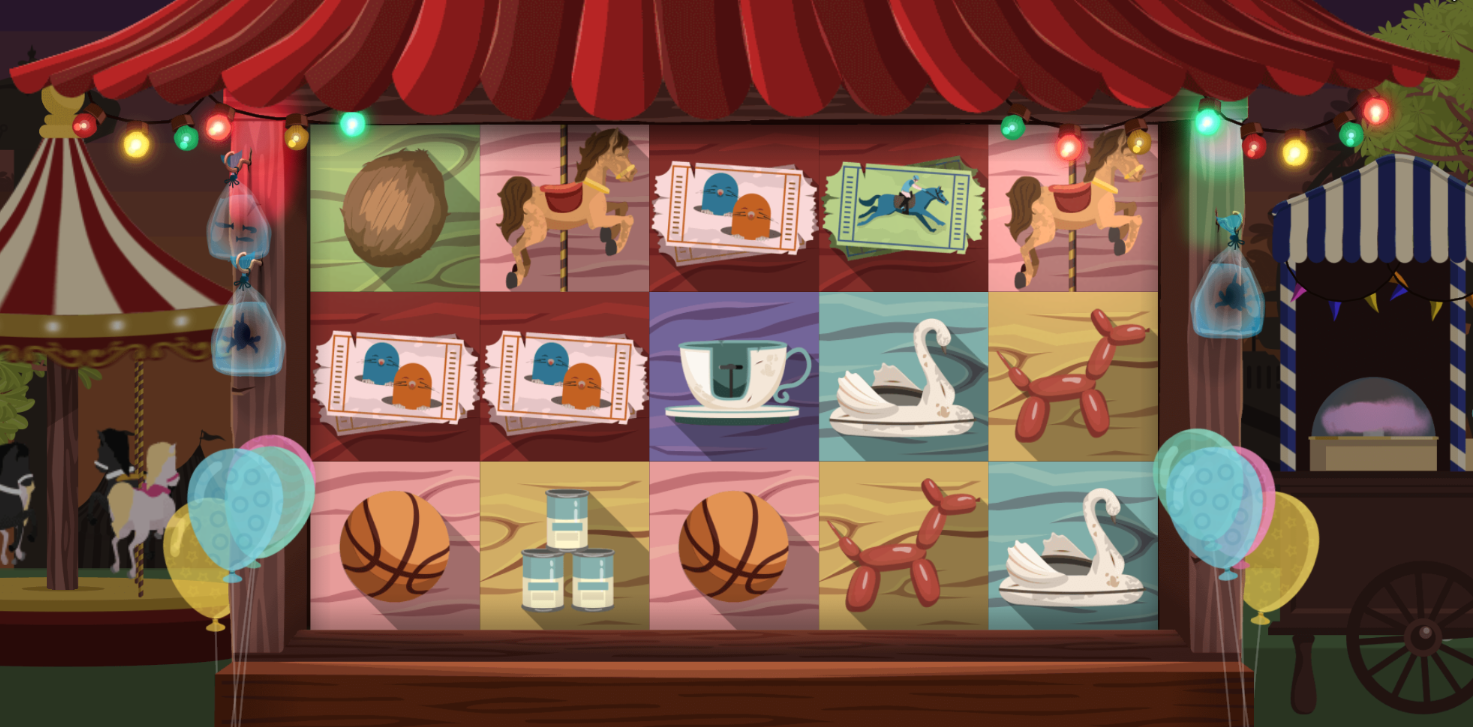
White Label Casinos
What Is a White-Label Product?
A white-label product is a product or service that is produced by one company and rebranded by another company.
Most supermarket store brand products are white-label products that are mass-produced by another company and labelled by the supermarket, either with the supermarket’s name or another brand name unique to that supermarket’s products.
The name white label comes from the idea of producing a product with a white label that can be filled in with the chosen branding of the seller of the product.
What Is a White-Label Casino?
A white-label casino is an online casino that’s been fully developed by a third-party software company and branded for the casino so it appears to have been created by them.
White-label casinos are a very cost-effective, fast, and simple way for an online casino company to start up. They take most of the work out of the development and running of the casino and allow the casino to pay for a ready-to-go product.
The operator of the casino and the white label provider each have their own set of responsibilities.
The casino operator is responsible for the day-to-day running of the casino, customer support for the players, player retention, marketing, and acquisition of players.
The white label provider is responsible for providing the casino software platform and the games, technical support to the casino operator, development and hosting of the website, legal infrastructure (including maintaining an active gaming licence), and payment processing.
Other Ways to Host Online Casinos
Many online casinos fit in between the extremes of Tombola’s ‘do it all yourself’ approach, and the white label casinos that outsource much of the work to a third-party company.
As mentioned previously, some casinos develop and maintain their own website but their games are developed by third-party gaming companies.
Self-Hosted Websites
Tombola is an example of a self-hosted website. This is a site that’s created by the website owner, who then pay a company for web hosting space.
There are several advantages to self-hosting a website:
- Flexibility to customise the website as desired
- Self-hosted sites can use as many plug-ins as required, with both free and paid plug-ins available
- Search Engine Optimisation (SEO) is potentially easier
However, there are downsides too:
- Often expensive, complicated, and time-consuming to set up and maintain, requiring a team of skilled technical staff
- Site issues with the site will need to be resolved in-house
Hosted Websites
A hosted website is created on a website builder or platform like Wix, WordPress, or Squarespace.
Some advantages of this approach are:
- Cost-effective, with Wix and WordPress allowing free initial set-up of the site
- The built-in tools make them much simpler to set up than self-hosted sites
- Easy maintenance of the site, taken care of by the host company
Again, there are disadvantages:
- Sometimes there will be hidden costs, that might only arise after a period of time, for example needing to pay for update
- Functionality is much more limited than with self-hosted sites
- A lack of control - host companies have the right to make changes to your site, which is out of your control
Online Game Developers and Providers
Online casinos wouldn’t be much without the games they offer, and most of them have hundreds of slots and games them on their site.
Whilst Tombola have taken the route of creating games themselves, they’re very much the outlier in the online casino industry. Almost all games that casinos have on their sites are created by third-party game providers, also known as game developers.
Casinos make contracts with these game providers, allowing them to host their games.
There are a large number of game developers. We’ll list some of these here, along with a list of some of their slots.
Slot Themes
One of the key features of an online slot is its theme. This determines the slot’s appearance but doesn’t affect the underlying mechanism behind it and how it plays.
Here are some popular themes:
- Countries, cultures, eras, and civilizations - for example Viking, Egyptian, Mexican, Oriental, Wild West, Irish, Stone Age, Tiki (Polynesian carvings in human form), and Arabian
- Animal themes - buffalos, cats, rhinos, pandas, gorillas, wolves, elephants, and lions are all featured in slots
- Fishing
- Halloween
- Adventure and action
- Christmas
- Mythical, magic, and fairytale
- Food
- Crime
- Horror
- Luxury
- Music
- Pirate
- Retro
- Space
- Sports
- Steampunk
- Superhero
- TV / Film
- Las Vegas
- Offbeat
Slot Mechanics
Alongside the slot’s theme, the way that they play, which is governed by the slot’s underlying mechanism, is also very important.
Fishing Games
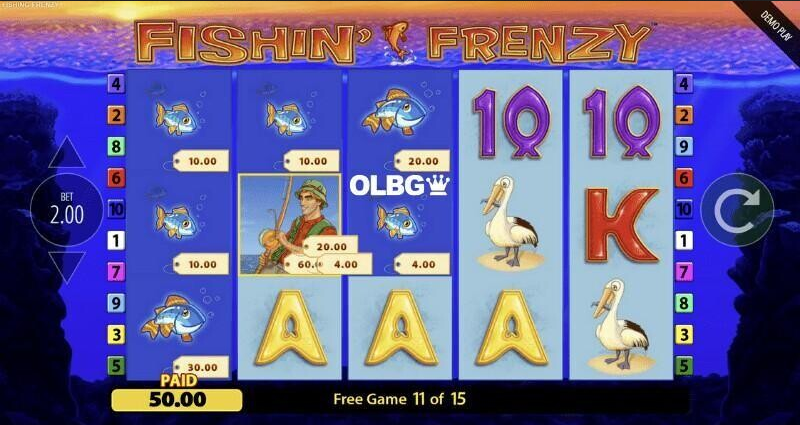
Classic Slots (based on classic fruit machines)
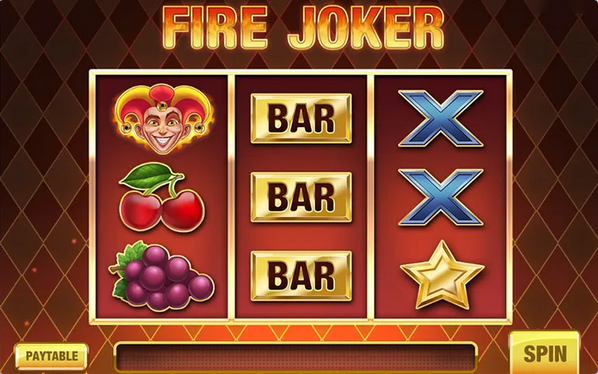
Progressive Jackpot
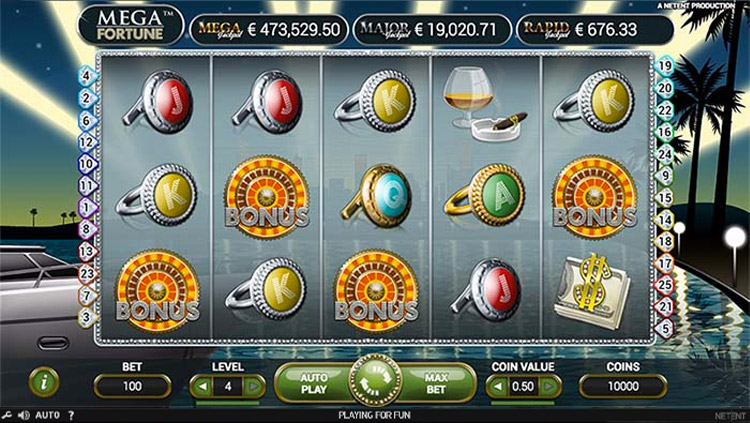
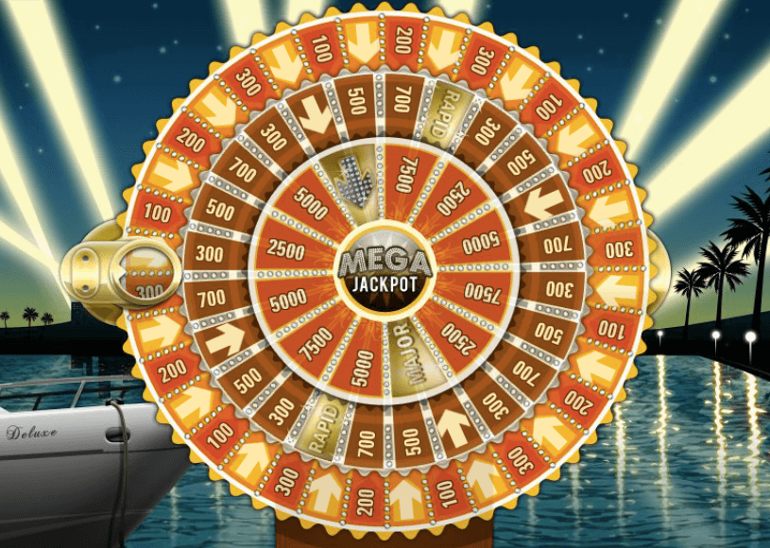
Megaways
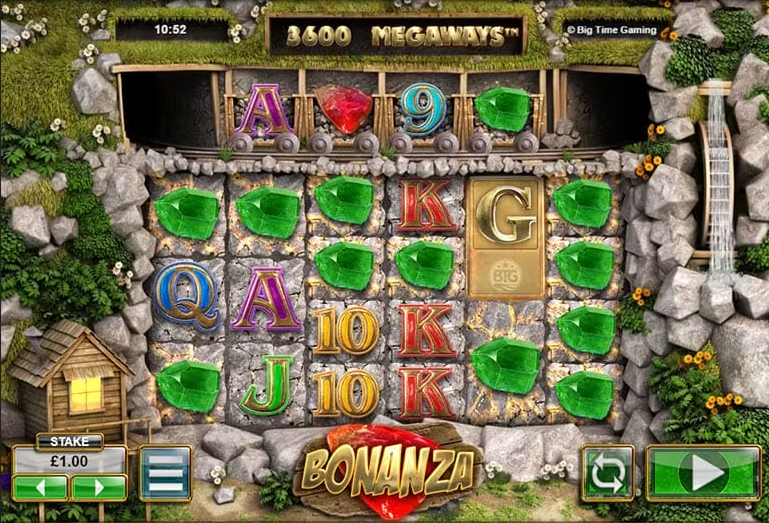
Tumbling / Cascade / Avalanche Feature
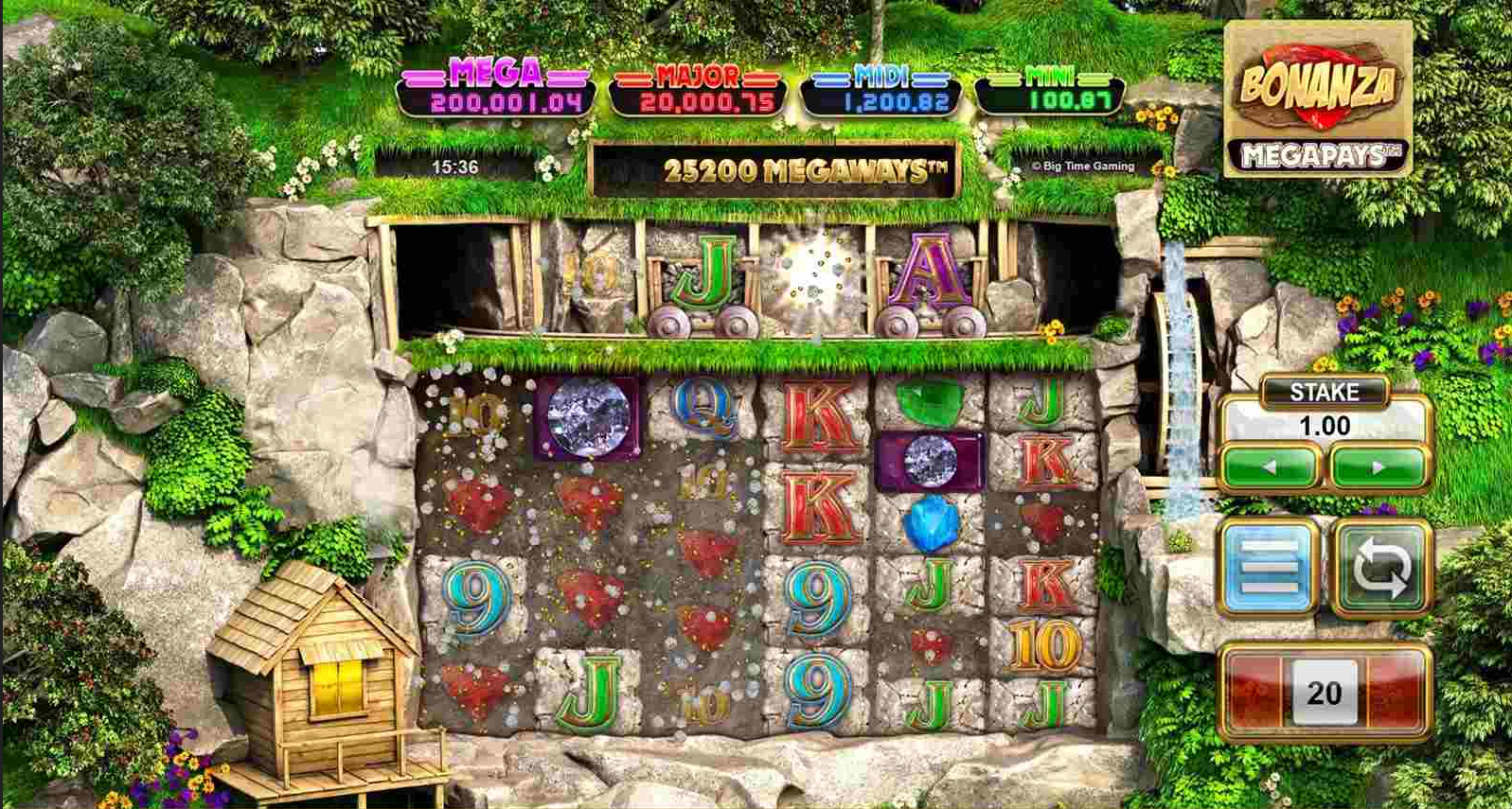
Free Games / Bonus Rounds
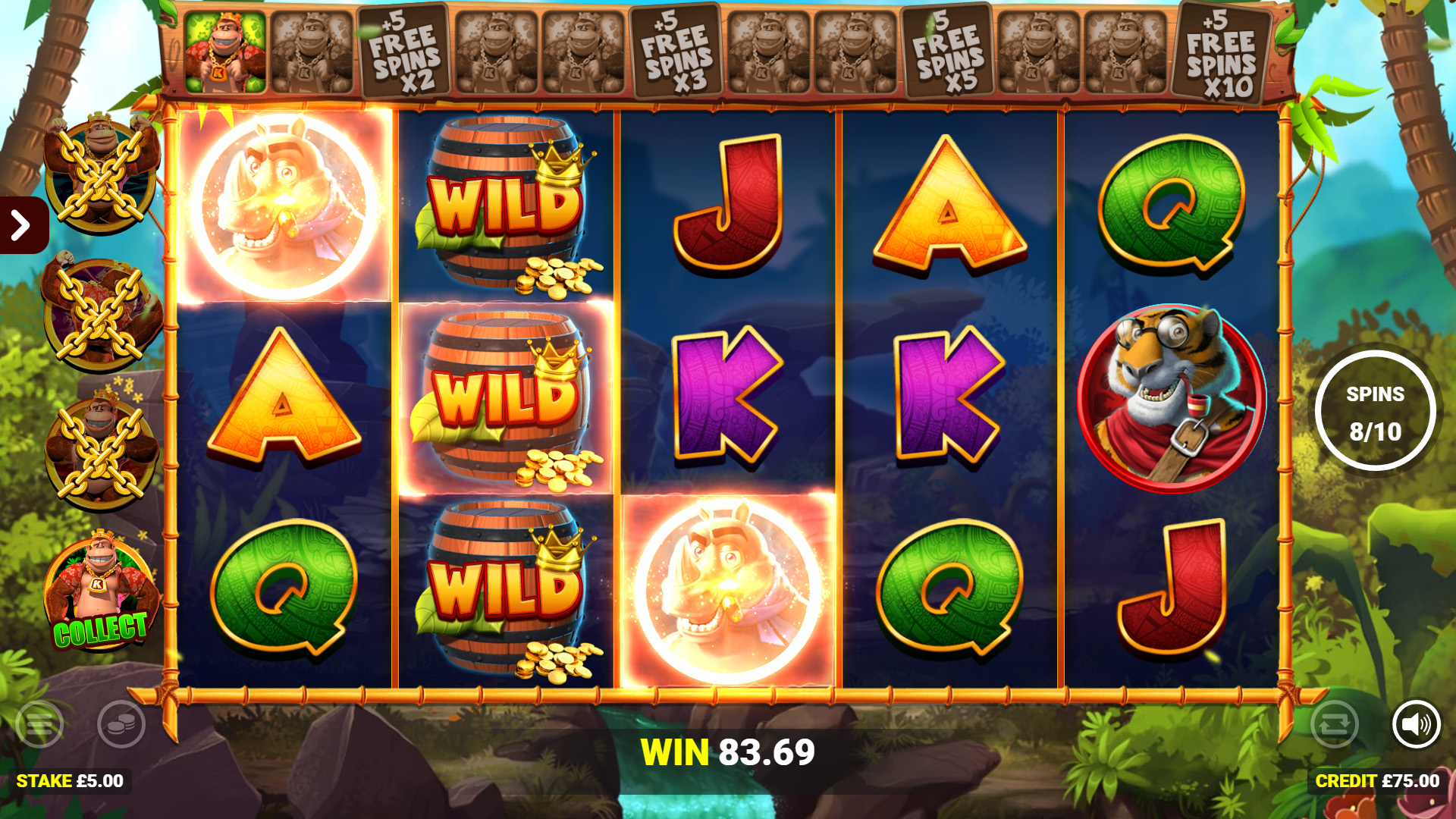
Hold and Spin
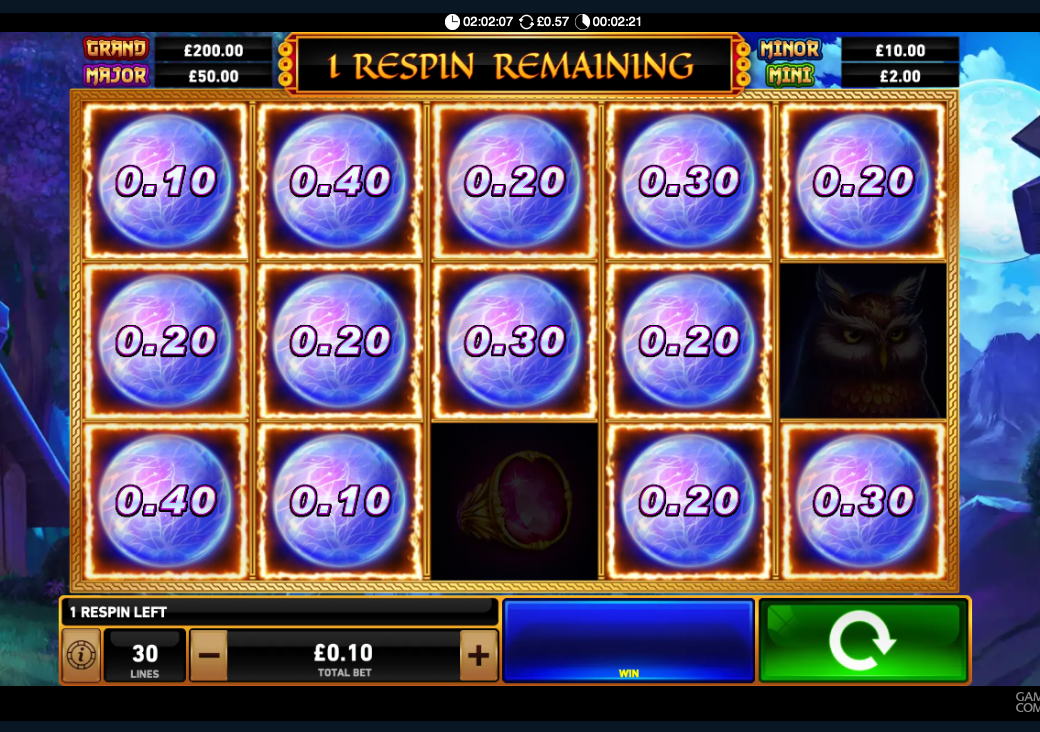
Pot Burst
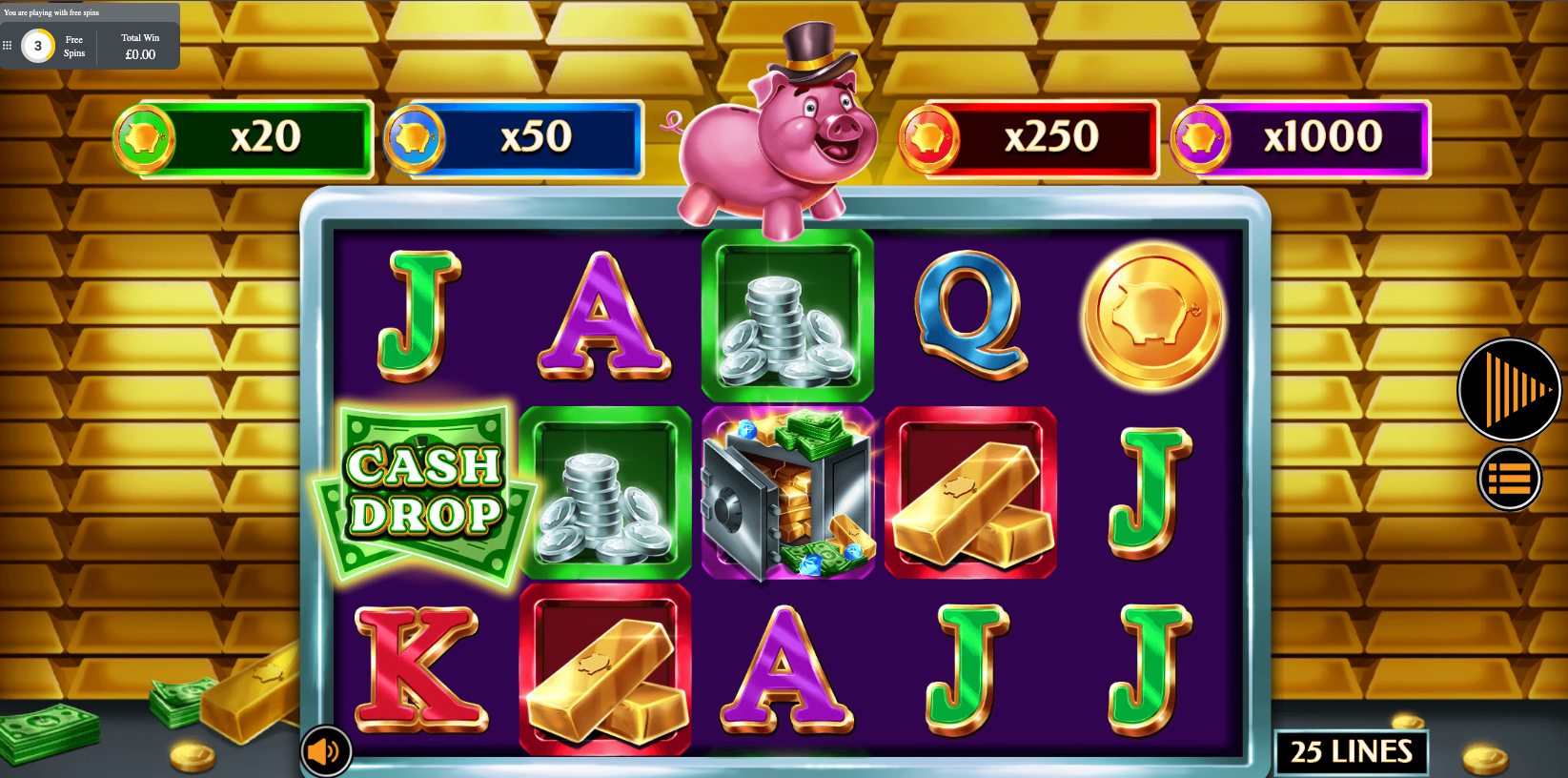
Wilds, including Expanding Wilds

Cluster Pays
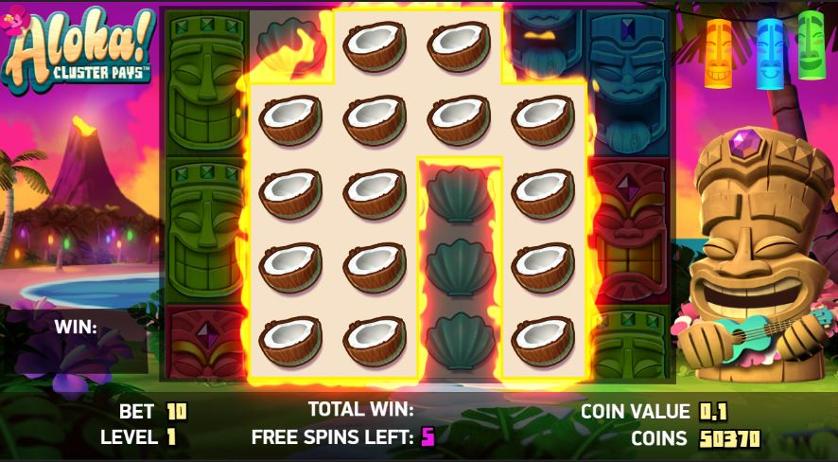
Gigablox
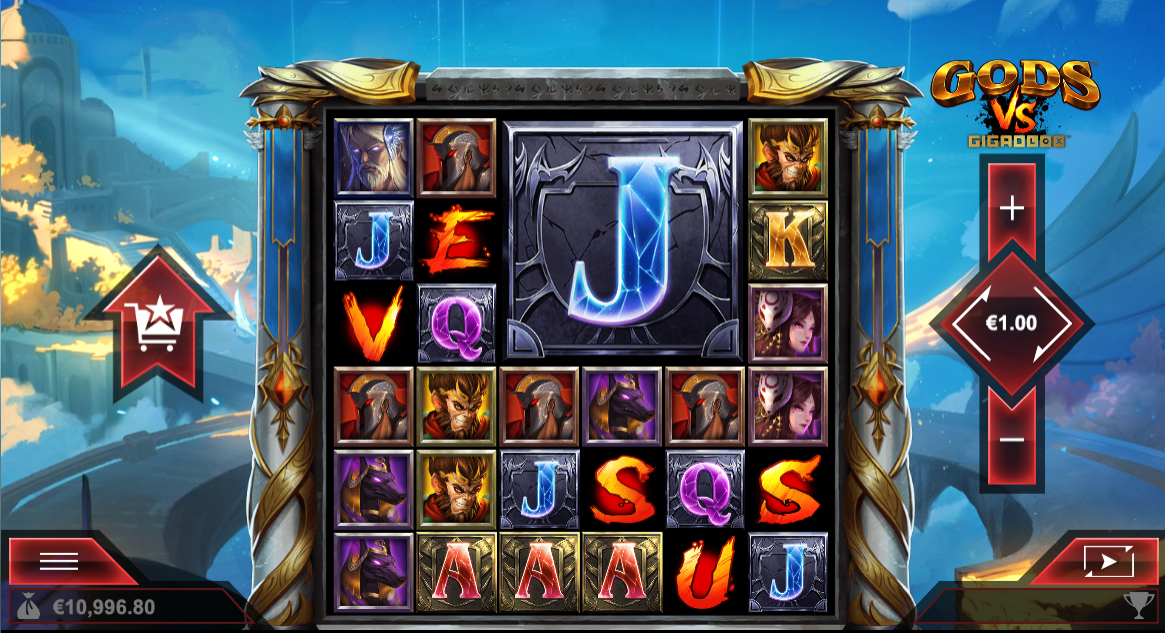
Infinity Reels
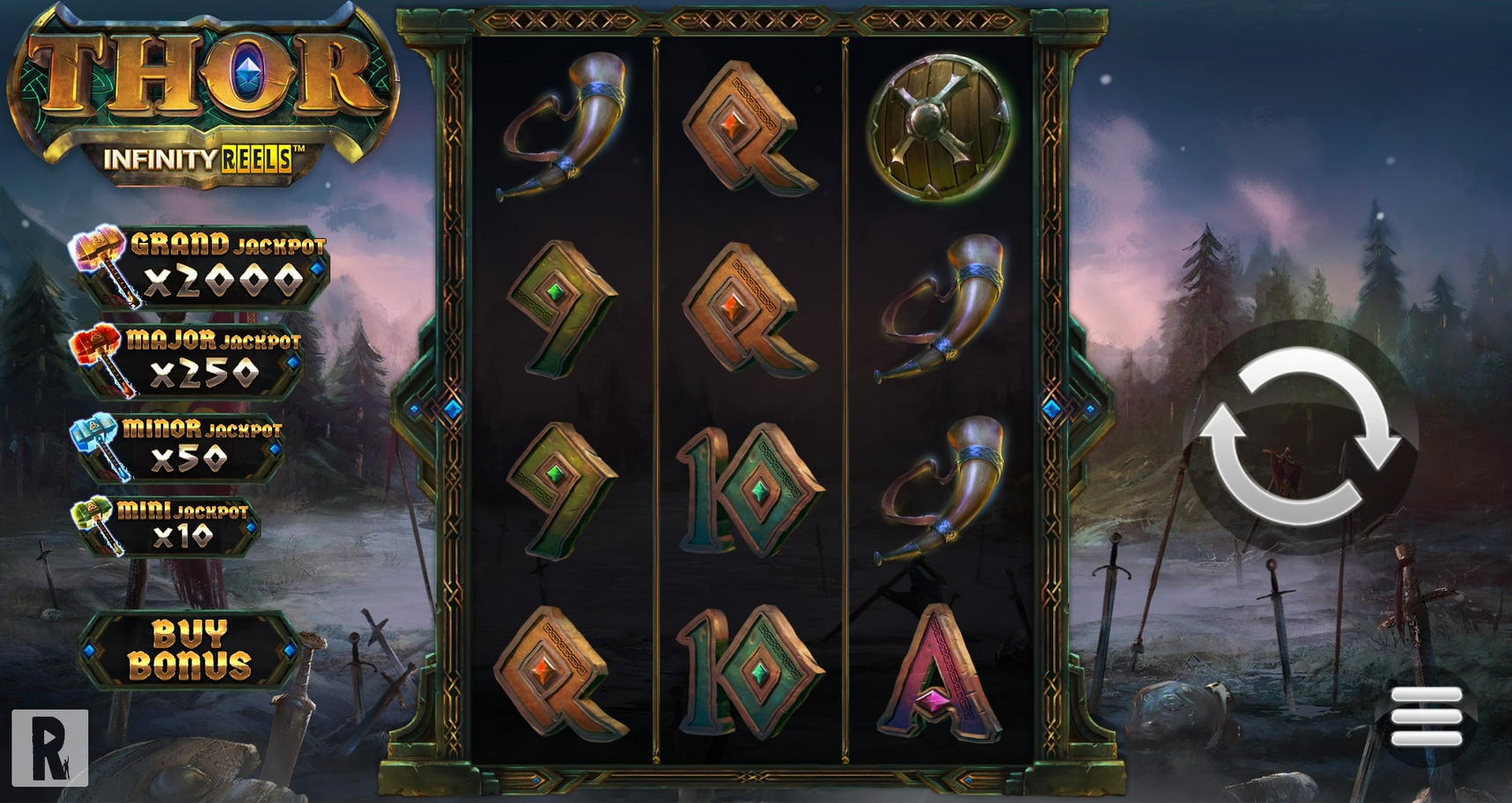
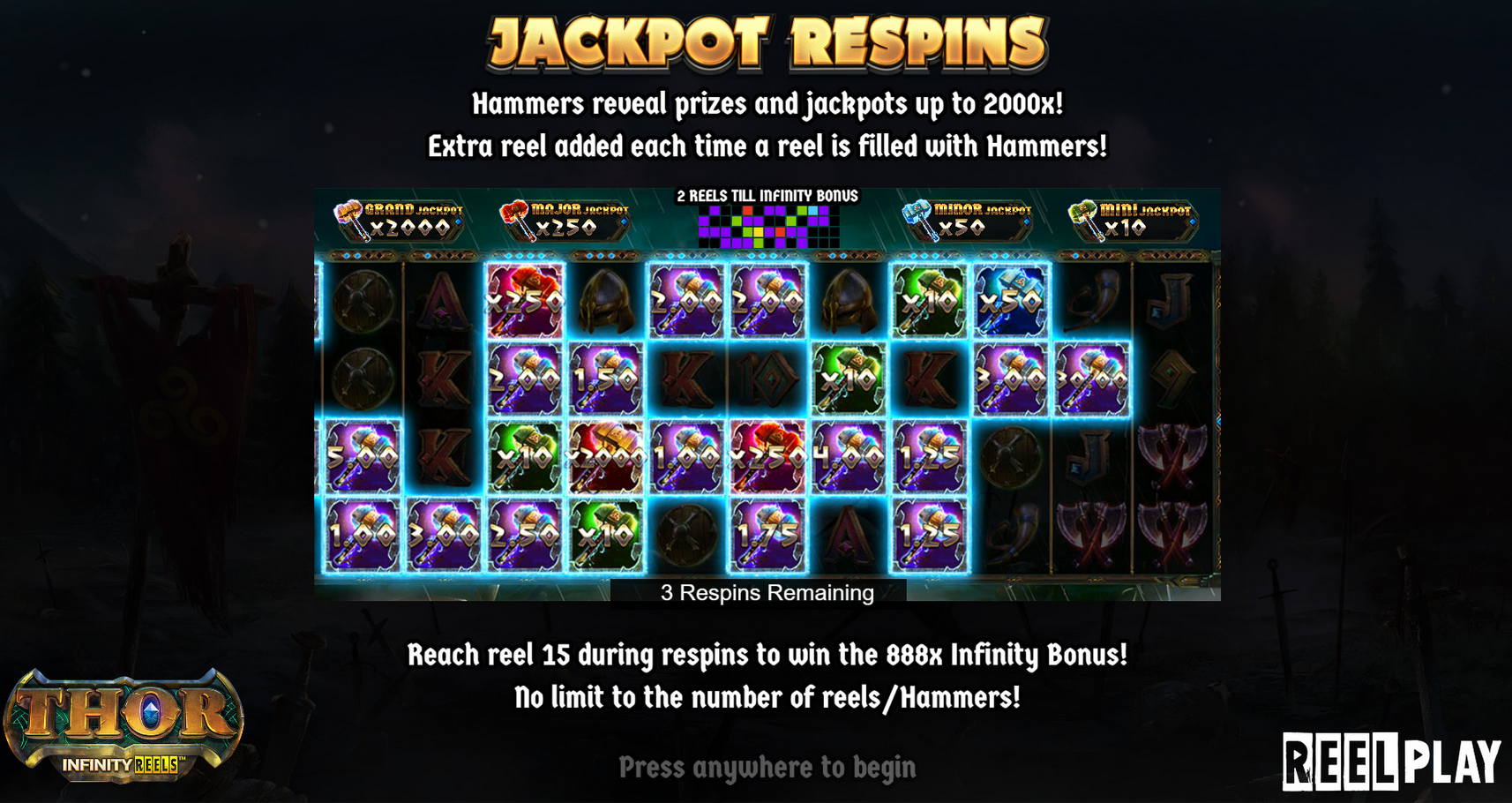
xMechanics
xMechanics are a range of game mechanics created by NoLimit City. They include xWays, where symbols on the reels can transform into any other symbols, and xNudge (shown below), which introduces a special wild symbol that can nudge up or down the reels, with a multiplier increasing with each nudge.
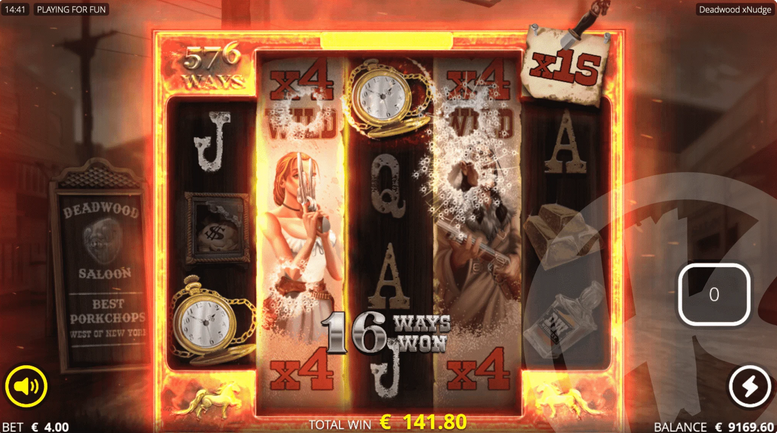
Clone Slots
Thousands of slots are available now, and the number is increasing daily. Many people won’t be aware that some slots are just different versions of an older slot, where the only difference is the slot’s appearance. These are sometimes called clone slots.
Examples are the three Playtech slots A Night Out, Halloween Fortune, and Gaelic Luck, which were released in that order. Here are screenshots of each slot:
A Night Out
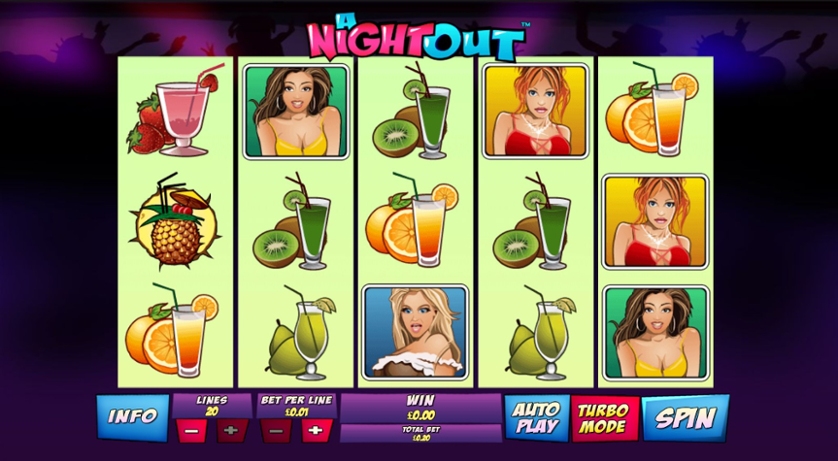
Halloween Fortune
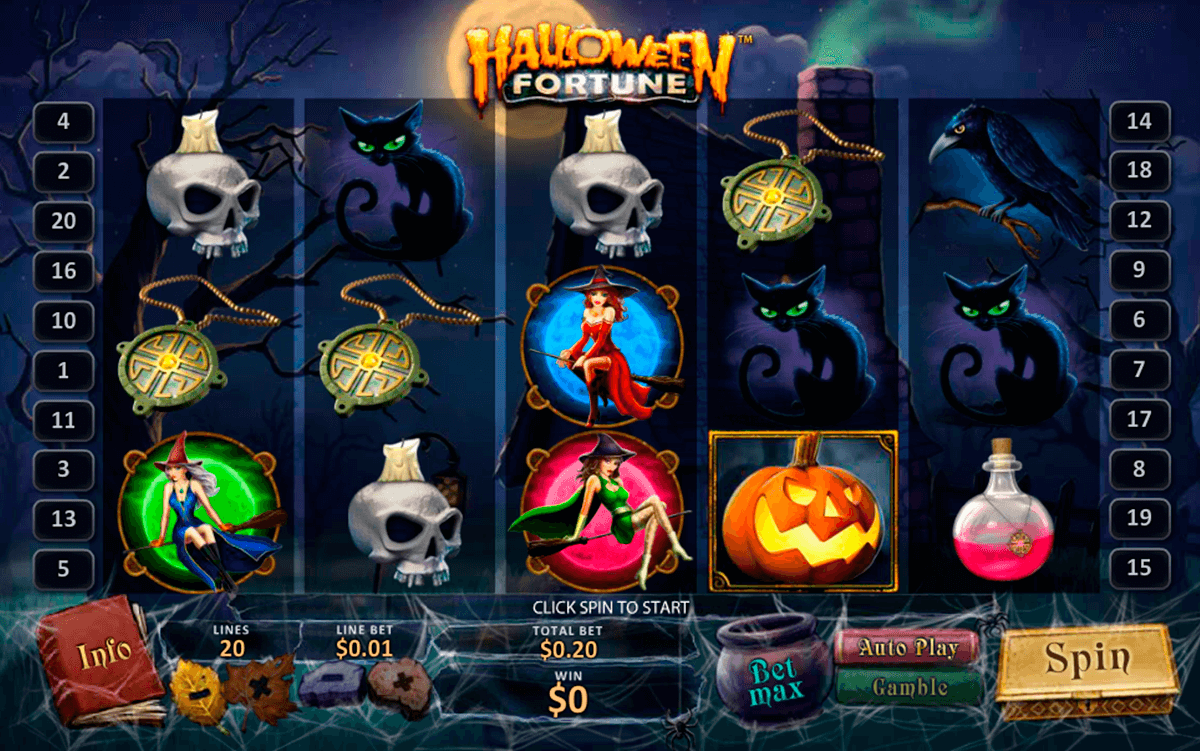
Gaelic Luck
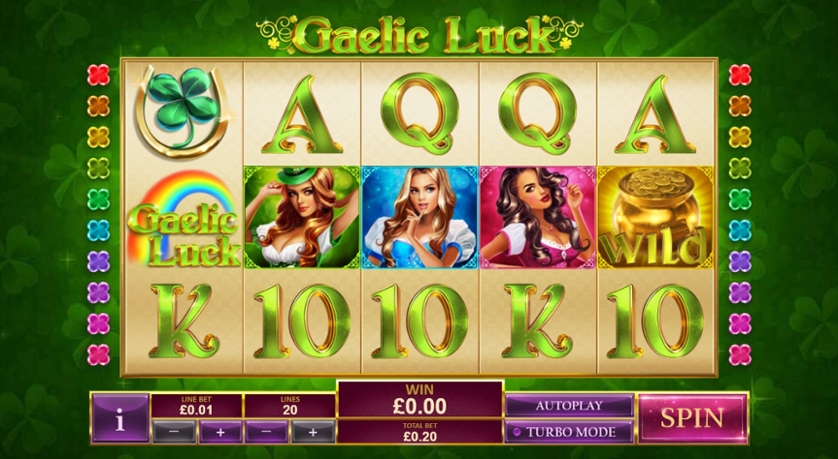
Although the three slots look different to each other, the way they play is identical. The only difference is the appearance, music, and theme.
Similarities become obvious with a little comparison of the slots - all of them have three different young ladies, wild, scatter, and bonus symbols, and a bonus game that plays in the same way.
Checking the paytable and rules confirms that the gameplay is identical between the three slots. Here’s the first page for each slot:
A Night Out Paytable
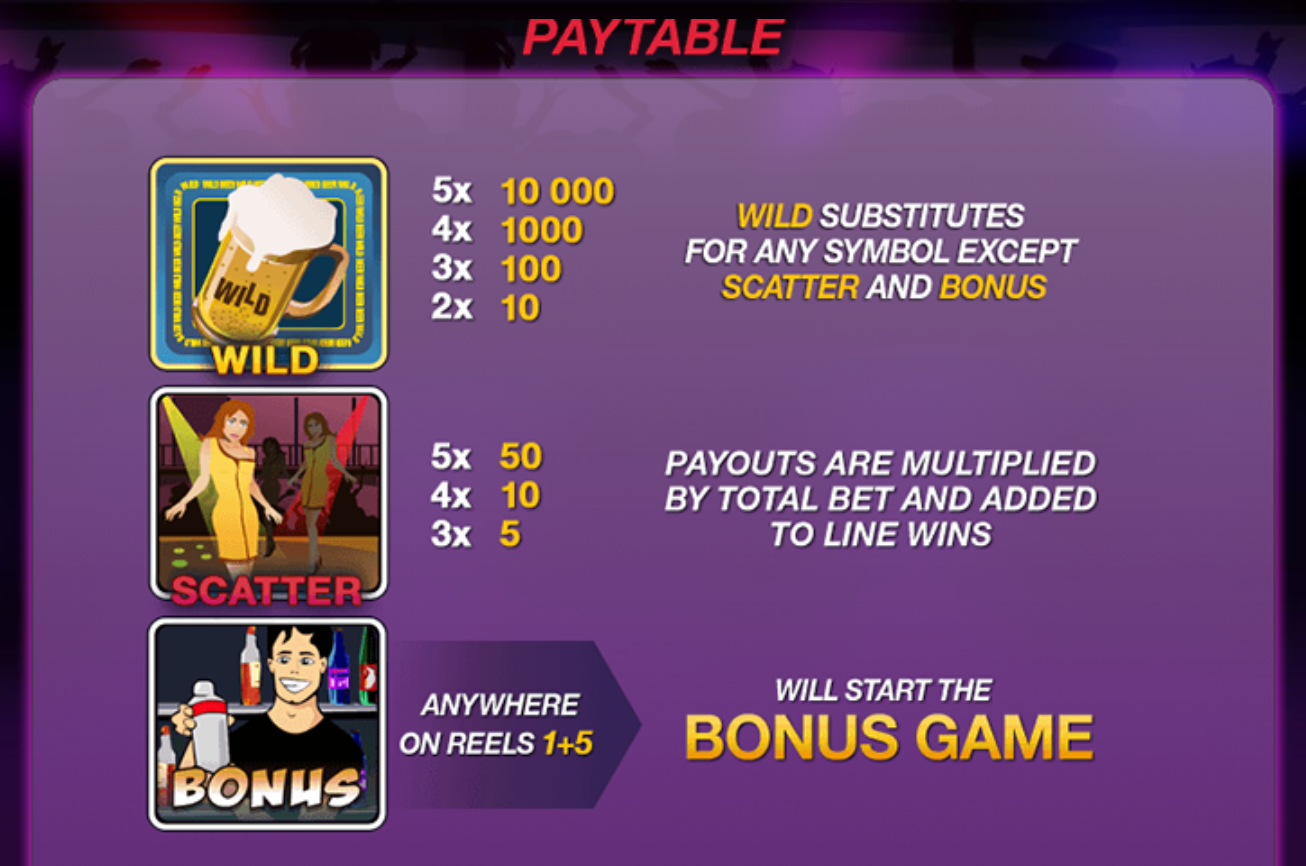
Halloween Fortune Paytable
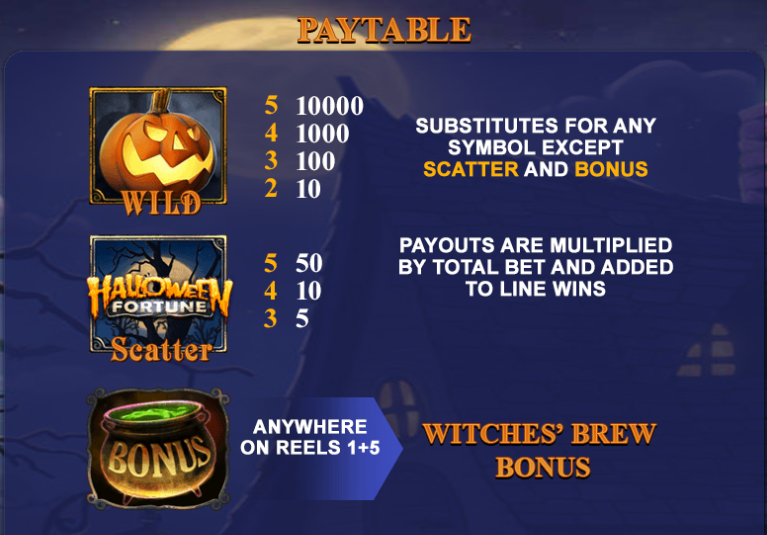
Gaelic Luck Paytable
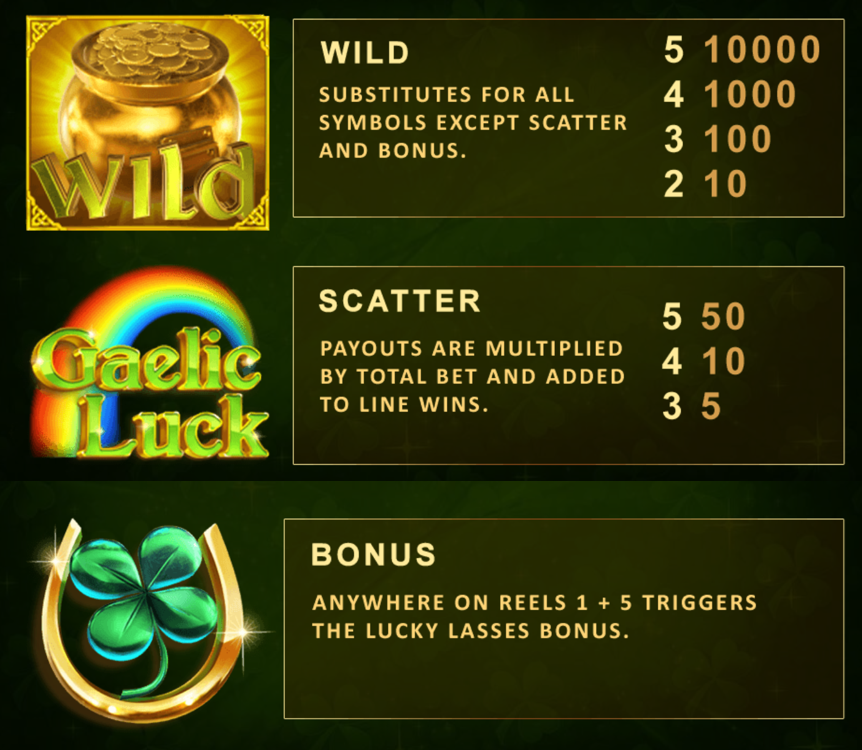
Looking at the game rules shows they have identical paylines, payouts, and bonus rounds. The original version of each slot also has the same 97.06% RTP. There are now newer versions with alternative RTPs that can be chosen by the casino.
Making clone slots like this is a very cost-effective way to create a ‘new’ slot, and highlights the importance of the slot’s presentation. Even though there’s no difference in the way the slots work, players will often prefer one of them.
How Are Online Games Hosted?
As with the way that online casinos host their sites, there are a few options for how the game providers host their games and websites. We’ll run through some options here.
Hosting On The Game Provider’s Server
One option for the game provider is to host all of their games on their own servers. This comes with the benefit of potentially having greater control over their games.
A downside is that they’ll be responsible for dealing with everything themselves, so will need to have a range of technical staff to handle different aspects of online gaming.
Remote Gaming Servers
An alternative to game providers hosting games on their own servers is to use a Remote Gaming Server (RGS). This is a backend system that both hosts and manages the game provider’s online casino games, ensuring the games run smoothly, are engaging for players, and are fair.
The key functions of the RGS are:
- Hosting games - The game content itself is hosted on the RGS
- Management of game logic - The game logic is the mechanic that underpins how the game works
- Mathematical models - Outcomes in the game are governed by mathematical models, for example Random Number Generators (RNG)
- Authenticating players - Players are identified and their sessions are managed
- Processing of player transactions - Stakes, wins, and other transactions are handled by the RGS.
There are several compelling reasons for game providers to use Remote Gaming Servers.
- Simplicity and increased efficiency - game development can be simplified, so developers can concentrate on creating engaging games without having to deal with every aspect of the running of the game. Dependency on external technical teams is removed or reduced
- Security - player data and transactions are protected by secure features of the RGS
- Compliance - games are required to comply with regulations (for example from the Gambling Commission), and this compliance is built into RGS platforms. This opens up new markets more quickly and easily for game developers, as they don’t have to deal with the compliance themselves
- Easier to add features - Some RGS providers offer game development kits, allowing the easy implementation of free rounds, jackpots, tournaments and other features.
Allowing Hosting of Games On The Casino’s Site
Another option that game developers can choose is to allow their games to be hosted on the casino’s site.
The software controlling the display of the game and the interface that the customers interact with is held on the casino site. However, the actual logic of the game (including the mathematical models, RNG, and the internal workings of the game) is stored on the game developer’s site.
Messages need to be sent back and forth between the casino and game provider for the game to operate. The casino has no access to the game’s logic, so they don’t know how the game works. This means that even if they wanted to, they couldn’t change how the game works.
To cheat players by fixing the game, the casino would need to collude with the game provider. This is very unlikely to happen since both the casino and game provider would lose their licence if they were found out.
As mentioned previously, there’s no need to cheat, since the casino’s edge is built into the games due to the RTP being less than 100%. At the same time, the game provider is paid for their slot by the casino.
How Online Casino Games Work
As internet and website technology have evolved, so have the ways that casino games are delivered to players.
Whereas previously, browser plugins like Java, Flash Player, and Shockwave Player were used, most online casinos now use HTML (HyperText Markup Language) interface for gameplay. HTML is the standard language for creating web pages.
For more detail about how slots work, here are a couple of very informative videos from a programmer who worked in the online casino games industry looking at the basics of slots and how slots work here.
Client/Server Communications
There’s a lot going on behind the scenes when you play an online slot or game, and the process will be outlined in this section.
When a slot is played, information is relayed over the internet. This online communication occurs between the client and server.
Client
The client is the device used by the player of the slot, which could be a mobile device or computer. This device displays the game’s graphics and interface, with its various buttons and menus, as well as delivering the in-game sounds.
The part of the game running on the client purely deals with the graphical display and responds to the player’s interactions with the slot where they click to spin, change stake, or enter a menu, for example. None of the game logic is handled by the client, which basically just ‘does what it’s told’ by the server.
Server
The server, operated by the game provider, is the ‘brains’ of the game. It contains all the information about how the game works, including the game logic and Random Number Generator (RNG).
When you play a slot, you’ll select a stake and then click to spin. At this point, the reels will start spinning, but the client won’t be able to stop them spinning until it receives a message from the server telling it where they should stop.
After clicking to spin, a message is sent from your client to the game server, informing it that you’re making a spin, and the stake size.
This information is fed into the game logic, which processes the information and generates an outcome. A message giving information about the outcome is then sent back to the client, which can then stop the reels spinning in the correct place to display the result of the spin.
With most slots, the outcome has been fully determined as soon as the server has processed the information and before it’s received by the client.
This means the outcome (including the amount of the win and the final position of the reels) has already been decided before the reels stop spinning. Even if a slot had a ‘stop’ button to stop the reels early, clicking this wouldn’t affect the outcome of the spin.
An exception to this is where a slot requires the player to make a decision that actually affects the outcome, based on where the reels finish. This could be to select a certain bonus round (for example the Danger High Voltage slot) or decide whether to ‘gamble’ their win or take the winnings displayed.
In this case, the server will need another message from the client about what decision was made by the player, before relaying the final outcome of the spin.
If a spin triggers a bonus round, the client still sends one message to the server which sends back a single message giving full information about the original spin and the whole bonus round.
This assumes the bonus round doesn’t involve the player making any tangible decisions that affect the outcome, which most don’t. For bonus rounds where you have to select a certain box or pick symbols, the final result has already been pre-determined as soon as that signal is sent back from the client.
It makes no difference which box or symbols you choose. An example of this is the NetEnt slot Blood Suckers. This gives you the illusion of choice, since you get to select the order of the coffins you pick. However, the outcome of the bonus round has already been determined before you select anything, so you it doesn't matter which coffins you pick.
For this bonus round, for example, you'd always open coffins with a value of 40 and 20, but their position would depend on which coffins you picked. The total bonus win would also be identical:
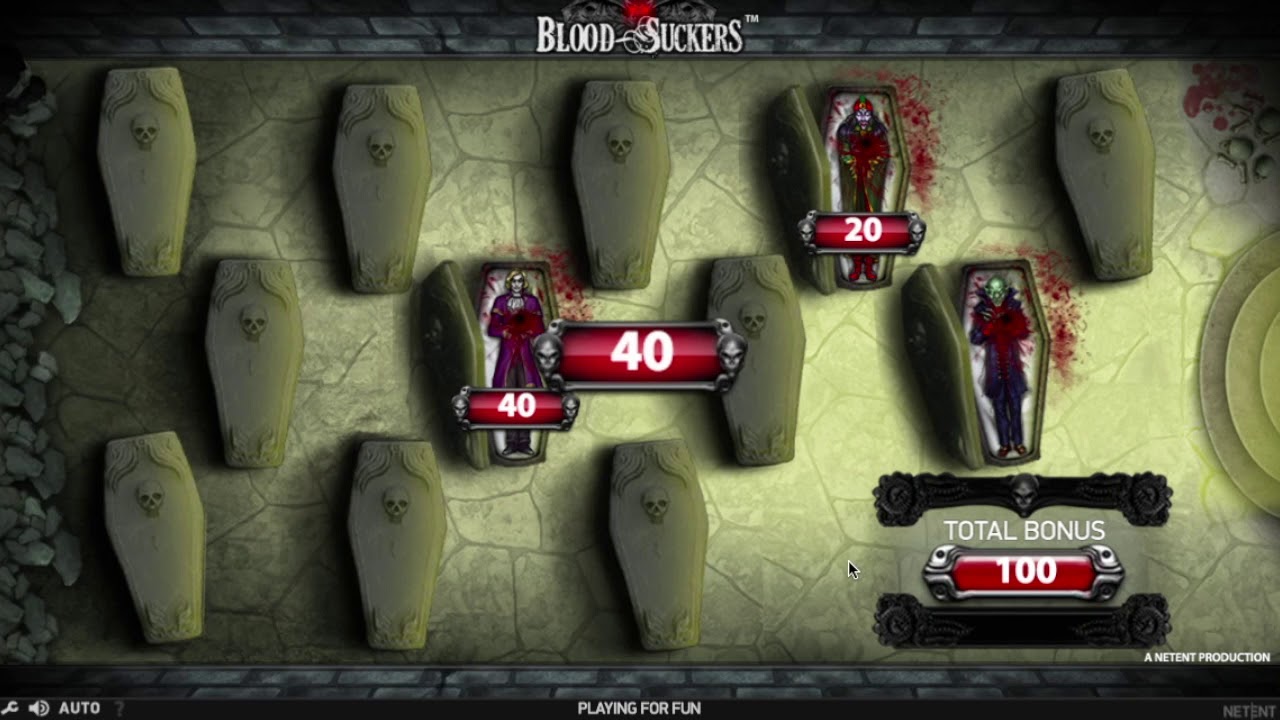
The first message sent from the server to the client in response to the spin includes full information about every spin of the bonus round, including re-triggers, multiple free spins, and jackpots.
The game logic determines the result of the spin using a Random Number Generator (RNG), which we’ll look at next. The RNG is either operated by the casino, which will generate a random number, and then send this to the game logic at the server, or the game provider themselves.
Random Number Generators
A common feature of online slots, casino games and virtual sports is that they all need to simulate the unpredictability of real-world slots, table games, and sports. To achieve this, they use Random Number Generators (RNG) devices as a source of true randomness.
Online slots, casino games and virtual sports all use RNGs to generate streams of random numbers with no pattern over millions of plays. These ensure that each outcome is completely unpredictable and unrelated to previous outcomes.
Random Number Generators are either software or hardware-based and can be split into two categories: True Random Number Generators and Pseudo Random Number Generators.
True Random Number Generators
It’s an understatement to say that True Random Number Generator (TRNG) devices aren’t new. Dice, which have been around for at least four thousand years, are a very simple TRNG that can generate random numbers in a range that depends on how many sides the die has.
Here’s a picture of an impressively made icosahedral (20-sided) die from Ptolemaic Egypt, dating from around 305BC - 30BC. They probably didn’t use them to play Warhammer!
_with_faces_inscribed_with_Greek_letters_MET_10.130.1158_001.jpg)
Shuffled cards can also generate random numbers, as can coin tosses, as long as you want to generate two different numbers randomly.
It’ll come as no surprise to hear that casinos don’t have a team rolling dice or drawing cards to generate their random numbers. Advances in technology and innovation have led to the development of a wide range of true random number generators, which are a little more sophisticated than rolling dice.
Modern True Random Number Generators use unpredictable natural processes like electronic or atmospheric noise to generate truly random numbers. Radioactive decay, the photoelectric effect, and other quantum effects are also often used as TRNGs.
Outside of online games, TRNGs are important in other applications, including encryption. Cloudfare is one of the largest networks on the internet and its web security services are used by about one-fifth of all internet websites.
As far-fetched as it might sound, their source of random data is a collection of around 100 lava lamps on one of the walls of their headquarter’s lobby:

A camera aimed at the lava lamps takes photos regularly, with the images sent to the Cloudfare servers. Each pixel of an image is converted into a number, and the whole picture becomes a series of random numbers that are used to create secure encryption keys.
Rather disappointingly perhaps, Bet365 don’t use lava lamps to generate random numbers. Having said that, they use some pretty cutting-edge technology to get the job done.
They give details of the true random number generator used for their virtual sports on their Fair Payout page. At the time of writing, they use a ComScire QNG Model PQ4000KS Quantum Random Number Generator, which looks like this:
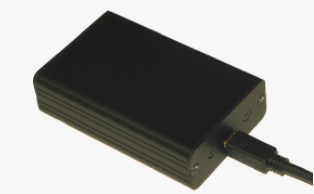
Pseudo Random Number Generators
Classical computers are deterministic, which means that future states of the machine depend on previous states, and that their outputs are logical and predictable.
Unless there’s an external source of randomness, a number-generating computer algorithm will always produce the same stream of numbers starting with the same input, so they can’t produce truly random numbers.
Because of this, regular computers use Pseudo Random Number Generator (PRNG) software to generate their random numbers.
Quantum computers, on the other hand, are capable of generating truly random numbers. However, at a cost of around $15 million (£12 million) or so, they’re a bit pricy for bookmakers and casinos to use.
As you’ve seen, bookmakers wanting a cheaper source of true random numbers have other more affordable options, like Bet365’s Quantum Random Number Generator.
True Random Number Generators like this are great for generating the random numbers required for virtual sports, where the same outcomes are used for all customers on the site. However, online slots are often played by huge numbers of players at the same time, so there will be issues if a TRNG is used but can’t produce random numbers fast enough.
Most online slots use Pseudo Random Number Generators as a random number source. These use a seed value, often generated by a True Random Number Generator, which could be the exact time on the computer’s clock, for example.
A computer algorithm uses this seed number to generate a sequence of numbers. These numbers aren’t truly random, since any given seed will always produce an identical sequence, they approximate the properties of a sequence of actual random numbers. PRNGs can also produce their numbers much faster than TRNGs.
Return To Player
Game providers often produce several versions of a slot (perhaps 3 or 4) with different RTPs. This gives casinos the choice of which version they want. Some casinos will have a preference for higher RTP, whilst others will prefer low RTP.
Casinos might also offer the higher RTP version of a slot to their VIP members, whilst everyone else gets the lower RTP version.
Here’s the ‘regular’ higher RTP version of Halloween Fortune as hosted by Netbet:

And here’s the lower RTP version of the same slot as found on William Hill:

Casinos need to ensure that information about the RTP of the slot is clearly available on their site, and this can usually be found from a help or information menu from within the slot itself.
Most slots quote one fixed RTP, but a handful show a range of RTPs. An example is Danger High Voltage, which has a range of RTPs quoted between 95.97% and 96.22%:

There may be different reasons why some slots show a range of RTPs. In the case of Danger High Voltage, it’s due to there being a choice of two bonus rounds. One of these bonus rounds will pay out slightly more on average than the other one, although the difference will be small.
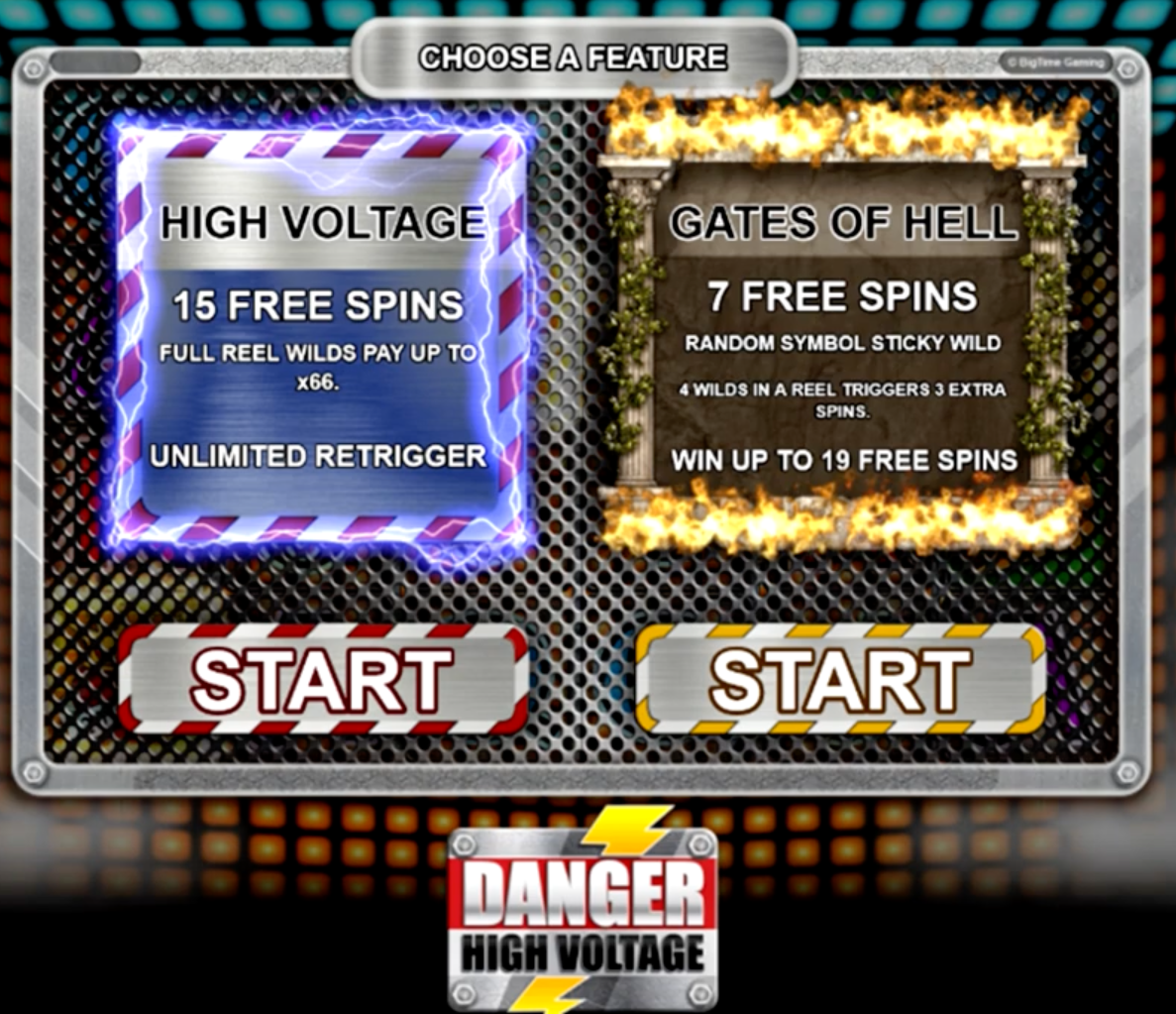
If you were to always select the worst bonus round, your long-term RTP would be 95.97%, whereas if you always went for the better bonus round, it would be 96.22%.
Analysing Slots
The inner workings of slots are usually a well-kept secret, known only to a small, select group of people. There are a few exceptions though, where their mechanisms are well understood.
There are a couple of ways to discover the mechanics of a particular slot. These are to deconstruct the slot or to get hold of its PAR sheet. We’ll look at both of these options now.
Deconstructing Slots
At its most basic, deconstructing a slot involves playing it and observing and noting down the outcomes. This is much easier with simple reel slots with no bonus rounds or free spins.
A technique called reel stripping is used to deconstruct slots. This involves observing the symbols that appear on each of the reels, then working out what the full reel looks like.
Michael Shackleford, the ‘Wizard of Odds’, used this process to deconstruct the Lionfish slot, a simple five-reel slot. Armed with a discreetly hidden camera, he recorded himself playing the slot at a Las Vegas casino, then went home to analyse the data.
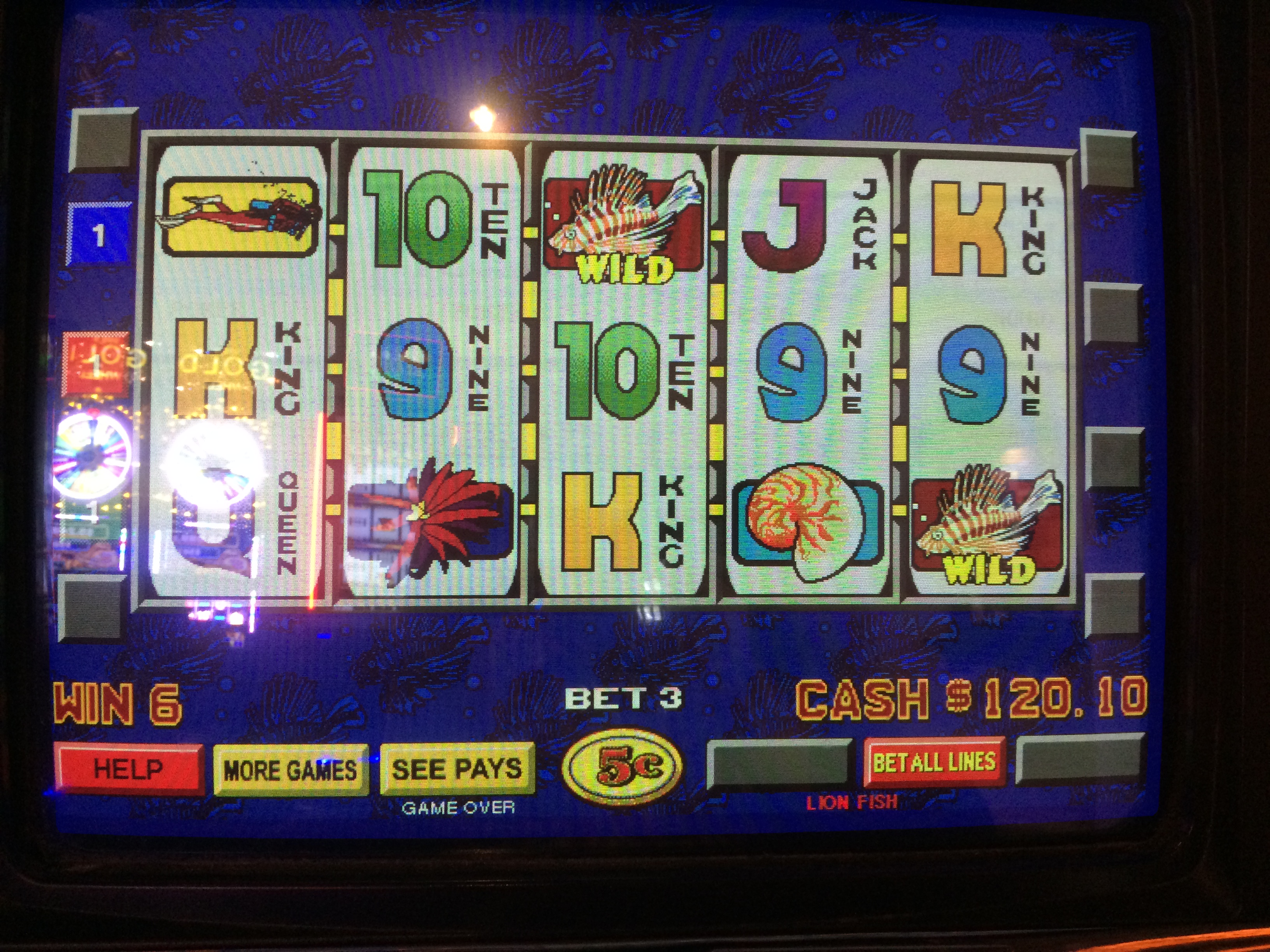
He recorded every sequence of three symbols on each of the reels, then compared these sequences to each other to piece together the five full reel strips.
The next step is to work out the probabilities of different winning lines, and then the expected returns from the different combinations. The mathematical analysis is difficult to do by hand, but can be achieved through some programming involving nested loops (five in this case, since there are five reels).
Using all this information, the long-term RTP of the slot can be worked out mathematically. For this particular version of Lionfish, the RTP was 90.01%.
PAR Sheets
Another way to gain an understanding of the mechanics of a slot is to get hold of its PAR sheet. It’s worth bearing in mind that searching for PAR sheet on the web will give you lots of links to Periodic Automatic Replenishment inventory sheets, which isn’t what you’re looking for!
When it comes to online slots and games, PAR stands for Probability Accounting Report. As it sounds, this gives details about the probabilities that relate to the mathematics of the slot, including how likely different outcomes are, as well as the expected value of different winning lines, and the overall RTP of the slot.
Although there aren’t many PAR sheets in the public domain, a few are available. These include the PAR sheets for four slots that were obtained through a freedom of information request by Kevin A. Harrigan and Mike Dixon of the University of Waterloo Ontario, Canada, and published here.
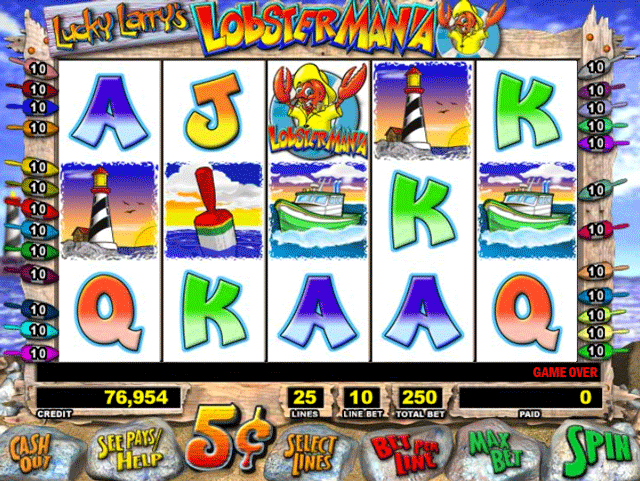
Here are the PAR sheets they obtained:
- One version of Double Diamond Deluxe
- Eight versions of The Phantom of the Opera
- Seven versions of Lucky Larry’s Lobstermania
- Seven versions of Money Storm
Michael Shackleford published his analysis of Lucky Larry’s Lobstermania using information from its PAR sheet to help with the analysis.
Regulation of Bookmakers and Casinos
Casinos are regulated to ensure customers are treated fairly, responsible gambling guidance is adhered to, customer identities are verified, and the casino’s games are fair and work as they should.
The Gambling Commission licences, regulates, advises, and provides guidance to both businesses offering gambling services and their customers, in Great Britain.
If a customer has a dispute with a bookmaker or casino, they can refer this to an Alternative Dispute Resolution (ADR) provider. Examples of ADRs are IBAS and eCOGRA.
IBAS
The Independent Betting Adjudication Service (IBAS) is a gambling-specialist Alternative Dispute Resolution (ADR) Service. It adjudicates disputes between licensed gambling operators and their customers.
eCOGRA
eCOGRA (eCommerce Online Gaming Regulation and Assurance) is a London-based testing agency and standards organisation in the realm of online gambling.
Ensuring Fair Play
If you’ve ever had a bad run on an online slot, it’s easy to become suspicious that the slot isn’t playing fairly and might be rigged against you. The truth is that reputable casinos don’t rig games.
Casinos don’t need to do anything as risky as cheating players, since their casino profit margin is built in due to the Return To Player (RTP) of all their slots and games being set to less than 100% (more of this later).
Coral point this out in their Fair Gaming statement:
‘The testing of games and technical software is a licensing condition that licensed operators must meet before its release. Failure to do so could carry hefty fines and the suspension of the licence. We would like to assure our customers that Coral would do nothing that could jeopardize our licence, as without a licence we would not have a business.’
Bookies and casinos, as well as the game providers who often host the slots, are also regularly and thoroughly tested by outside agencies to ensure fairness.
One such organisation that’s used by many online casinos and bookmakers is eCOGRA. They’re an independent and internationally approved testing agency, that tests, inspects and certifies online gambling software and systems.
Bookies and casinos also conduct their own testing, with Bet365 stating that they play through games millions of times before they’re made available on their site.
The all-important Random Number Generators are thoroughly tested and accredited by independent testing companies, like eCOGRA, that complete various tests to ensure the RNG is completely random.
It’s also important for bookies and casinos to check that their live casino games are fair. Coral’s Fair Gaming statement explains that their live gaming takes place in strictly controlled studios. This includes full recording and monitoring, as well as the same sort of statistical performance checking that is used for RNG gaming (online slots, computer-generated table games and virtual sports).
Coral mention that live dealers can make mistakes but, should this happen, these errors should be obvious to the players and supervisor, and can be checked. Their Live Casino ‘Pit Boss’ can be contacted using the chat function of the Live games, or by contacting customer services.
eCOGRA provide a Payout Percentage Report for casinos. A report for BV Gaming (the group that includes Betvictor), is shown below:
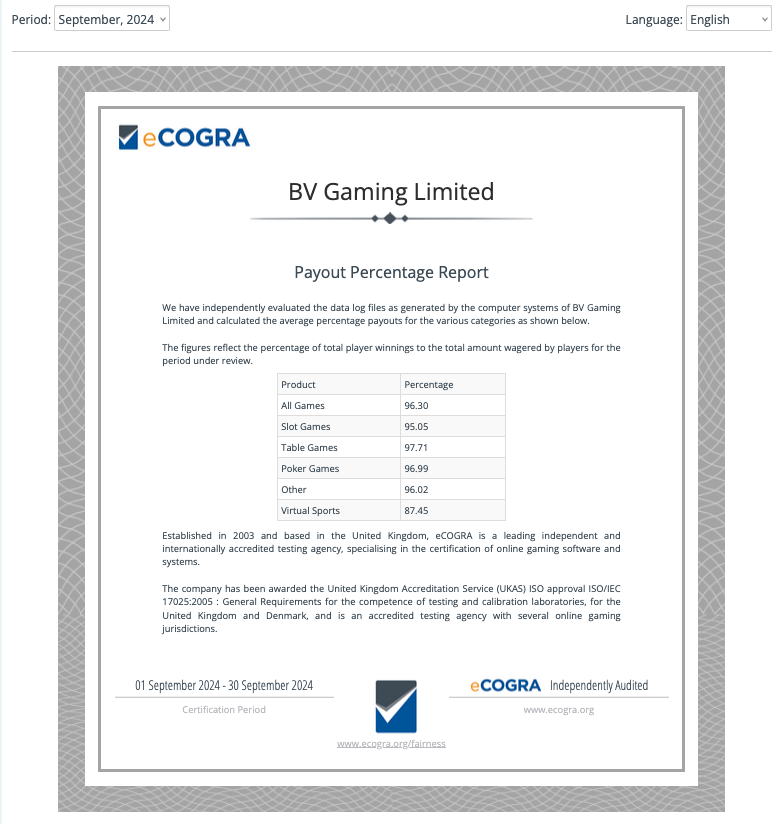
Conclusion
Playing online slots is a hugely popular pastime, but there’s a lot of misinformation about how slots actually work, and a wide range of unhelpful myths that persist about them.
In this article, you’ve seen how online casinos and games providers are hosted on the internet, how the games are delivered to players, and what’s going on behind the scenes when you play a slot.
If you want to find out how you can make long-term profits by doing casino offers or Matched Betting, outplayed.com gives you access to a range of superb guides, with casino offers worth around £2,000 of EV every month, along with tools and world-class customer support.
Updated: 19 Aug 2025
The Author
Simon has helped thousands of members profit from Matched Betting using both his passion for writing and desire to understand how things work. He has used his mathematical and analytical skills to create several guides, calculators, betting and casino tools to make the process of Matched Betting easier for newcomers and experienced members alike.

